Mercedes-Benz A250e review: High price counteracts hybrid gains
New technology should cost extra, but Mercedes-Benz has pushed the envelope with its newest addition to its Australian small car line-up.
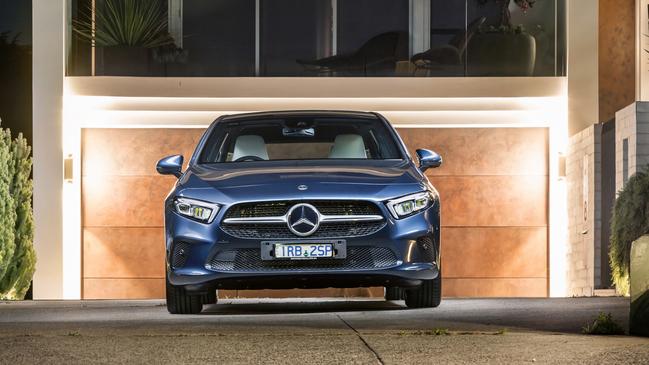
Luxury
Don't miss out on the headlines from Luxury. Followed categories will be added to My News.
Mercedes-Benz’s new plug-in hybrid hatchback produces some tempting numbers.
Based on the A-Class hatch and sedan, the A250e delivers the sort of grunt once associated with V8s.
There’s 450Nm of torque, not far off the 500Nm of the A45 AMG, the world’s most potent hatch.
Its 160kW power peak is also none too shabby, helping propel the latest addition to the line-up to 100km/h in as little as 6.6 seconds.
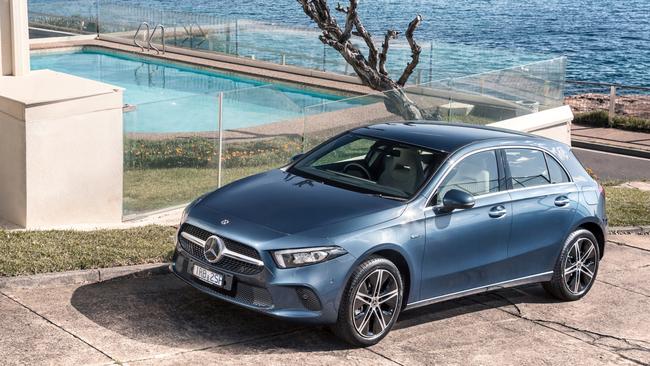
The official fuel consumption figure — 1.6 litres per 100km — is thoroughly miserly, too.
But then there’s the price. Almost $70,000 for the hatchback and another $2600 for the sedan.
That circa-$13,000 premium over the regular A250 brings a 75kW/300Nm electric motor integrated into an eight-speed automatic transmission.
A 15.6kWh battery supplies up to 73km of electric range.
Additional punch comes from a petrol engine that can also recharge the batteries.
Rather than the 2.0-litre engine used in the regular A-Class, the A250e gets the 1.3-litre from the A200, which supplements the electric motor with 118kW and 250Nm in hybrid mode.
In electric-only mode, the instantaneous torque ensures hearty progress past 100km/h. The effortless surge is particularly useful in city traffic.
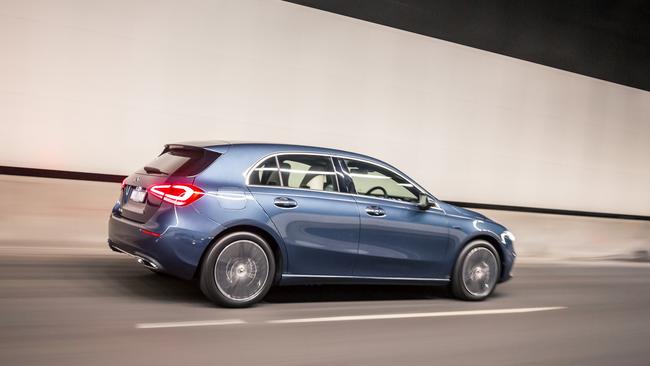
Our EV-only range took us 57km on a mix of suburban streets, 80km/h freeways and 60km/h back roads.
Performance is thoroughly respectable and the smooth delivery is a plus.
The A250e feels more compliant over bumps than the regular A-Class, doing a nice job of smothering imperfections. It’s not as sharp through bends, though, in part because the independent rear suspension has been replaced by a more compact torsion beam set-up.
The additional weight slows direction changes and challenges mid-corner grip.
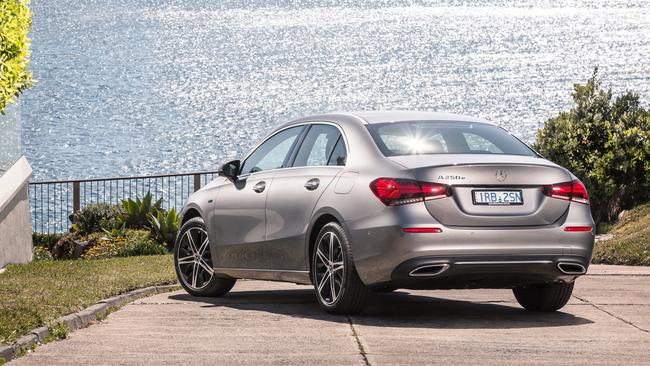
Recharging can be done with a 240V plug or a wallbox that takes 4.5 hours.
An optional fast charging pack ($1490) allows for DC charging of up to 24kW for an 80 per cent top-up in 25 minutes. It also lowers the wallbox charge to 2.5 hours.
However, the enormous price premium over a regular A-Class means owners will likely never recoup the premium.
Even on free electricity or household solar and limiting daily trips to electricity alone (less than about 60km) the annual fuel savings are about $1400, so it would take the best part of a decade to repay the $13,000 investment.
That’s based on the unlikely assumption that owners won’t use any petrol.
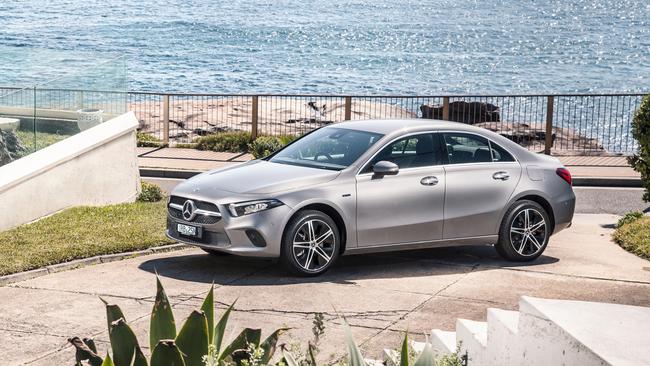
In hybrid mode, the assistance provided by the electric motor provides depends on the charge left in the batteries. Repeated uphill blasts deplete crucial electrons, so when you step on the throttle the electric liveliness is diminished, the 1.3-litre turbo instead left to shove most of the 1700-odd kilos (150kg of which is batteries). The transmission sometimes takes a moment to gather its thoughts before modest performance ensues.
Other times you’ll step on it and there’s a beautiful electric surge complemented by a petrol engine huffing along. Push hard and a rush of air is expelled from the exhaust, which exits somewhere under the middle of the car rather than at the rear.
It’s one of many tweaks to package a lot of hardware into a small vehicle.
The fuel tank has been moved below the boot, near the AC and DC chargers, which means no spare tyre and a raised boot floor, reducing capacity by about 15 per cent.
Electrics and tricky PHEV hardware aside, the equipment in the A250e is identical to that in the regular A250.
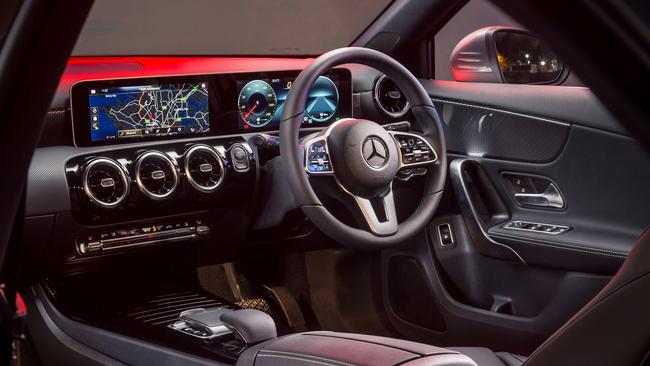
That means two large display screens, 18-inch alloys, digital radio, navigation, wireless phone charging and auto emergency braking, lane-keep assist and speed-sign recognition.
But the leather is Benz’s imitation Artico, seats are adjusted manually and smart-key entry is $790.
None of which makes the A250e a standout plug-in hybrid.
While Benz managed to price the larger GLC close to its petrol variants, the A-Class numbers are less appealing.
VERDICT 2.5/5
Decent electric-only range but at a big price.
MERCEDES-BENZ A250e VITALS
Price: From $69,600 drive-away
Warranty/servicing: 5 yrs/unl’td km, $3500 over 5 yrs
Safety: 5 stars (2018), 9 airbags, auto emergency braking with pedestrian and cyclist detection, lane-keep assist, attention assist
Engine: 1.3-litre 4-cyl turbo and electric motor, 160kW/450Nm (combined output)
Thirst: 1.6L/100km
Spare: Repair kit
Boot: 310L (hatch), 355L (sedan)
Originally published as Mercedes-Benz A250e review: High price counteracts hybrid gains
